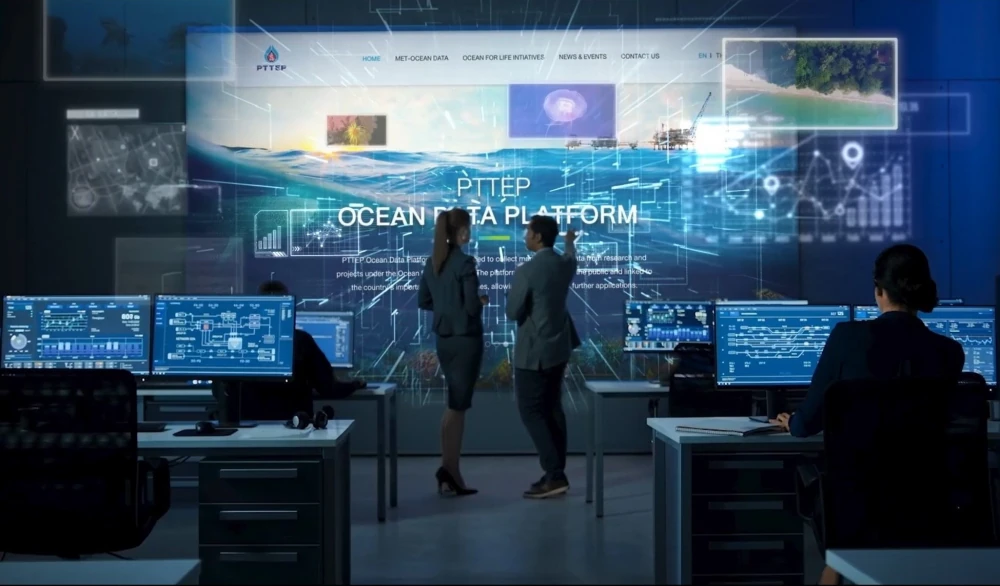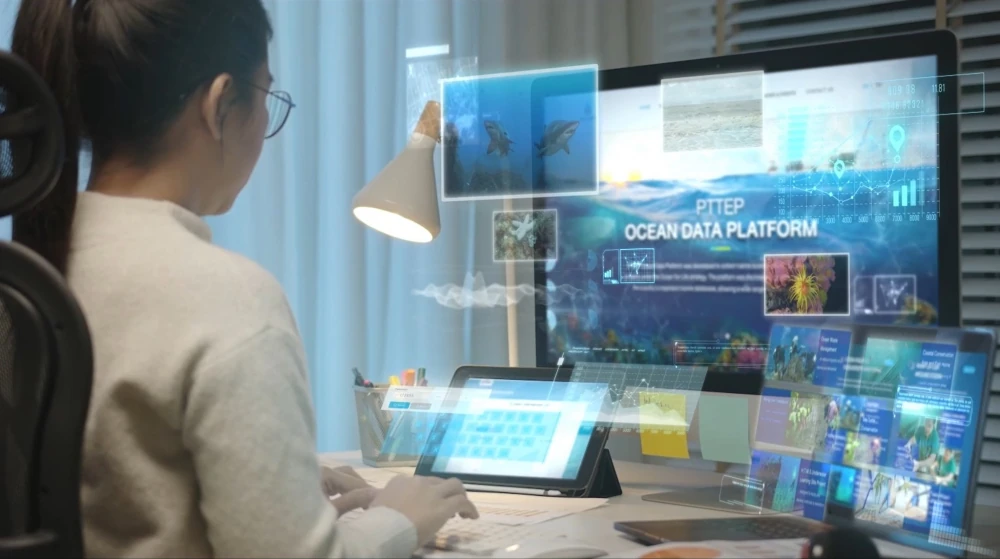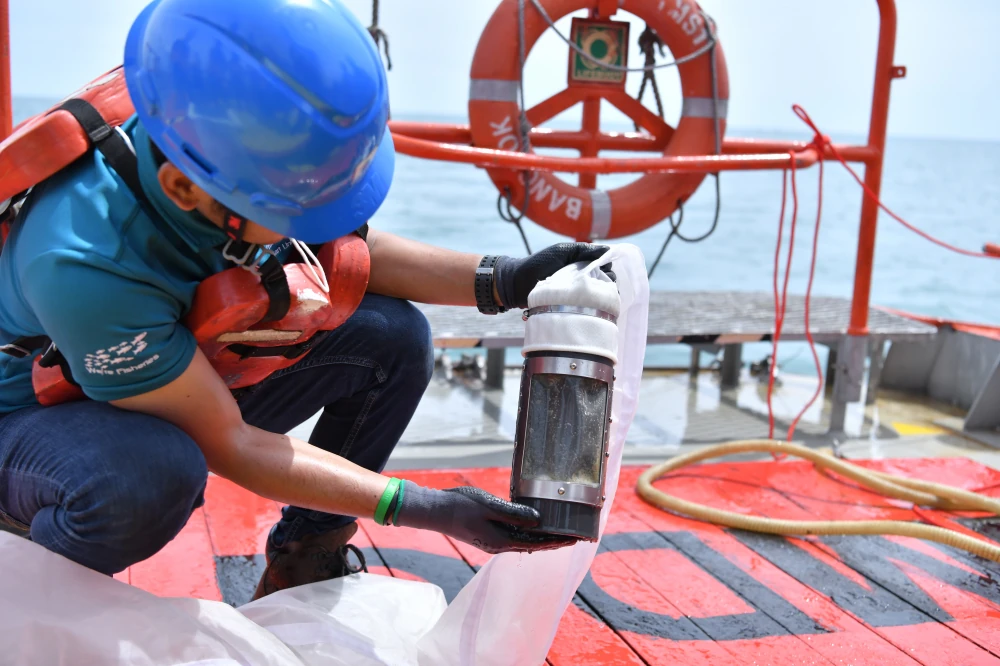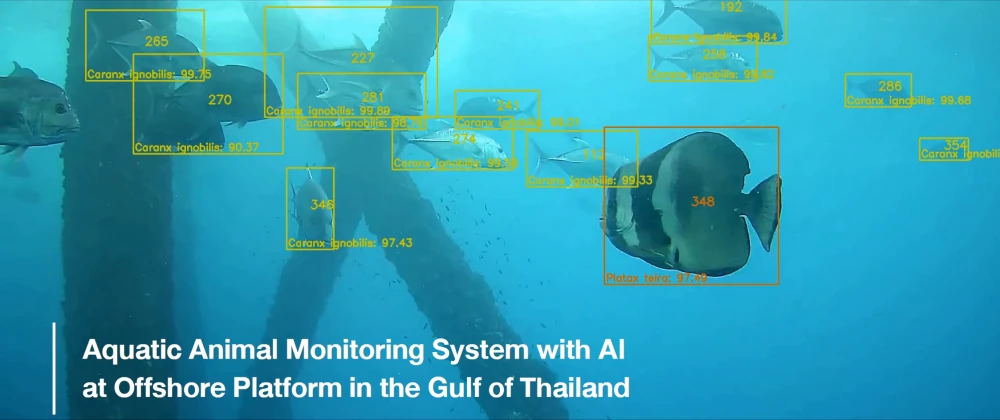
Special Feature
“PTTEP Ocean Data Platform” for the sustainability of Thailand’s seas

One of the main challenges in ocean conservation today is the limitation and difficulty in accessing marine science data, particularly the data collected from offshore areas. PTT Exploration and Production Public Company Limited (PTTEP), with the majority of its operations offshore, considers the oceans as our second home, which we strive to nurture and protect. Our initiative, the PTTEP Ocean Data Platform, has been developed to enhance the ocean science data of the Gulf of Thailand, bolstering ocean sustainability. The initiative supports the United Nations Sustainable Development Goal (SDG 14: Life Below Water) as well as Thailand’s and PTTEP’s goals.

The marine science data provided will benefit Thailand’s ocean science study and research. The data can be used for various conservation and emergency plans including early warning systems; the accuracy enhancement of mathematical models; the study of ocean currents that influence the ecosystems and biodiversity including coral bleaching and recovery; etc. The platform also features information on PTTEP's ongoing projects that have conserved and rehabilitated natural resources and marine ecosystems while supporting the wellbeing of coastal communities in 17 provinces surrounding the Gulf of Thailand.

Collecting seawater sampling for microplastic level analysis
The platform provides data from the company’s initiatives under the “Ocean for Life” strategy. For example, the Telemetry Marine Monitoring Station collects and transmits meteorological data including wind speed and direction, and air temperature, according to the configured time settings. Oceanographic data such as water current speed and direction and sea surface temperature at various depths, up to 10 meters from the sea surface has also been gathered. In collaboration with Kasetsart University, seawater samplings from nearshore and offshore sites are collected for the microplastics baseline and monitoring study to analyze microplastic level and identify their type and origin. Given the limitations of collecting samples from remote locations, PTTEP offshore petroleum platforms in the Gulf of Thailand are utilized as seawater sampling sites. This approach not only provides essential offshore data but also supports a comprehensive comparison between nearshore and offshore microplastic levels. This will lead to more effective management of both inland and marine waste in Thailand.
Furthermore, PTTEP Ocean Data Platform shares data from AI-assisted underwater cameras installed at petroleum platforms, which monitor and identify aquatic animals with 85 percent confidence, supporting biodiversity study and conservation efforts.

In developing the PTTEP Ocean Data Platform, PTTEP has collaborated with various partners including government agencies and academic institutions such as the Department of Marine and Coastal Resources, the Hydro-Informatics Institute (Public Organization) and Kasetsart University. Together, we have implemented diverse initiatives covering the study, research, monitoring, and disclosure of marine science data.
PTTEP looks forward to expanding the collection of scientific and ocean health data to other operating sites in Thailand and overseas to advance ocean data networks, which will support ocean science study/research and improve the efficiency of marine resource and coastal conservation and management.
All are welcomed to visit the PTTEP Ocean Data Platform at https://oceandata.pttep.com and utilize the provided data for marine conservation efforts.